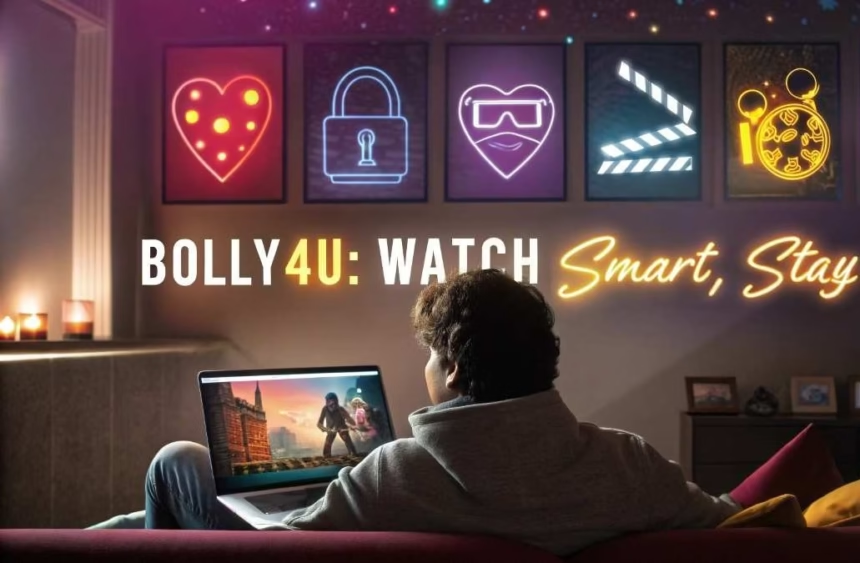MUMBAI – Behind the sparkle of Indian cinema, where Hindi blockbusters and Telugu big-budget spectacles pull crowds worldwide, sits a persistent thief. Bolly4u, a widely used free streaming site, feeds millions who want instant access without paying a rupee.
This so-called generous service is a piracy machine, draining billions from the film business and drawing sharp scrutiny from Indian and international authorities. With India’s movie industry losing an estimated ₹20,000 crore to piracy each year, Bolly4u is a stark symbol of broken copyright that threatens the future of theatrical releases and streaming debuts alike.
This story is not only about free films. It is about financial damage, legal manoeuvres, and global pressure. From multiplexes in Mumbai to living rooms in Hyderabad, Bolly4u’s catalogue tempts viewers with illegal streams and downloads. Regulators in the United States have urged stronger action, and the pressure is growing. Can India stamp out a platform that keeps changing its face to stay online?
What Bolly4u Serves Up
Enter Bolly4u, and a vast library appears, though every click is on shaky legal ground. The platform, which shifts across domains like bolly4u.org, bolly4u.win, and bolly4u.Plus, it lists movies in many languages and categories. Users find streams and downloads from compact 300MB files for phones to 1080p and even 4K copies.
Hindi films sit at the core. Recent releases such as Baby John (2024), starring Varun Dhawan, and the Yo Yo Honey Singh biopic Famous (2024), show up soon after hitting cinemas. Classics like Dilwale Dulhania Le Jayenge appear alongside newer hits, including Deva (2025), a gritty police drama, and Dominic and the Ladies’ Purse (2025), a left-field comedy. Genres range from romance and action to thrillers and family dramas, often with dubs in multiple Indian languages.
The catalogue does not stop with Bollywood. Telugu titles receive heavy attention. Hindi-dubbed versions of Vendhu Thanindhathu Kaadu (2022) and high-profile 2025 releases like Pushpa 2: The Rule are listed with dual audio options. Tamil, Malayalam, Kannada, and Punjabi films are prominent too. Viewers can grab RRR (2022) in 720p or watch a new Kannada action title, all without any licence from the rights holders.
Hollywood content is also targeted. Dual-audio uploads of international hits such as Demon Slayer: Kimetsu No Yaiba – Infinity Castle (2025) and the latest Marvel entry appear with Hindi tracks for bilingual audiences. TV shows, web series like Mirzapur, international titles including Stranger Things, and Pakistani dramas round out the line-up. Categories simplify browsing: Bollywood 300MB, Dual Audio 720p, South Hindi Dubbed, and regional Telugu hubs.
The draw is obvious. No subscriptions, claims of minimal ads, and fast links. In a market where data costs add up and services like Netflix or Disney+ Hotstar charge ₹149 to ₹1,499 per month, the promise of free content hooks students and price-conscious users. The hidden trade-off is steep. Pop-ups often open the door to malware, phishing scams can harvest passwords, and every click chips away at the livelihoods of the people who make these films.
Why Bolly4u Breaks the Law
Bolly4u is not a grey area. It violates India’s copyright framework outright. The Copyright Act, 1957, updated several times to address online piracy, is clear. Section 14 grants creators exclusive rights to copy, distribute, and publicly communicate films and sound recordings. Bolly4u breaks those rights by posting pirated versions, often from camcorder recordings or OTT rips, without permission.
Under Section 51, unauthorised streaming or downloading is infringement, and Section 63 sets penalties of up to three years in prison and fines up to ₹2 lakh for first offences, with higher penalties for repeat offenders.
The 2012 amendments expanded liability to include storing infringing copies on devices. Users are not immune. While enforcement often focuses on operators, Indian courts have fined downloaders, and ISPs like Jio and Airtel have issued notices. The Cinematograph (Amendment) Act, 2023, also targets unlawful recording in cinemas, with jail terms of up to three years and fines of ₹10 lakh.
The platform survives by domain hopping. Once one address is blocked, a mirror emerges via overseas hosts in permissive jurisdictions. Indian courts respond with John Doe orders under the Code of Civil Procedure, restraining unknown infringers. Since Taj Television v. Rajan Mandal in 2002, these orders have evolved into dynamic injunctions. In 2024, the Delhi High Court granted ZEEL a sweeping order to block more than a hundred mirrors in advance.
The Ministry of Information & Broadcasting (MIB), through its anti-piracy cell, works with the Department of Telecommunications to block domains. In 2024, over 2,000 offending sites, including Bolly4u variants, went dark according to MIB figures. Police units in major cities have raided uploaders and seized servers. Yet evasion continues, with VPNs masking users and Telegram channels spreading fresh links.
The fallout is severe. FICCI-EY estimates suggest piracy can strip 40 percent of opening weekend revenue. RRR reportedly lost around ₹100 crore worldwide to leaks. Smaller producers suffer most, and some never recover. As Karan Johar said at an IIFA panel in 2025, piracy threatens the survival of the industry.
Global Pressure Rises
India’s piracy problem has international stakes. Hollywood treats platforms like Bolly4u and Movierulz as direct threats to export revenues. With Indian viewers consuming dubbed US titles outside legal platforms, the Motion Picture Association (MPA) estimates US industry losses in the billions.
The Special 301 Report from the US Trade Representative keeps India on the Priority Watch List and highlights streaming piracy in its 2025 edition. It names sites like Bolly4u as major offenders and calls for faster injunctions and stronger ISP blocking, echoing earlier proposals for a specialised anti-piracy forum.
The diplomatic angle is blunt. During high-level visits, the US linked trade benefits to stronger IP rules. The MPA funds training, assists with operations through India-focused teams, and partners with agencies to speed up action. A US-India IP Dialogue in 2024 introduced a Dynamic+ protocol to enable near real-time blocking without long delays. In 2025, a new MIB-US MoU aims at joint cyber operations, with a target of hundreds of takedowns by year’s end. Even so, fresh mirrors keep appearing, which tests the limits of enforcement.
Indian agencies continue to track and disrupt the network behind Bolly4u. The Cyber Crime Coordination Centre (I4C) monitors uploads with automated tools. In 2025, Telangana Police arrested a group linked to Tollywood leaks tied to the site and seized about ₹5 crore. Delhi’s Special Cell keeps an eye on proxy networks and link-sharing channels.
John Doe orders remain a key tactic. In Star India v. Unknown in 2024, the Delhi High Court blocked 73 domains, among them clones used for illegal IPL streams. The Madras High Court, in a 2023 Movierulz matter, extended relief to mirrors and worked with agencies overseas to freeze assets. Yet technical barriers persist. Servers outside India complicate investigations, and anonymising tools keep users hidden.
Awareness campaigns help. MIB’s Say No to Piracy spots during the IPL reduced visits to some sites, according to traffic data. Telecom partnerships now insert invisible watermarks to trace leaks back to source accounts. As MIB Secretary Apurva Chandra put it, stopping piracy requires smarter tools and constant pressure.
Bolly4u shows that free content comes at a cost. It starves crews, squeezes producers, and exposes users to security risks. Legal services such as Netflix India, Disney+ Hotstar, and ZEE5 now offer low-cost or ad-supported plans from ₹99, and JioCinema and YouTube host a growing selection of free or affordable films across languages.
India can go further. Target repeat downloaders with clear penalties, give I4C stronger cross-border powers, and support cheaper OTT access in smaller towns and rural areas. Until those steps scale up, Bolly4u and its clones will keep resurfacing. Viewers have a choice. Pay for content, support creators, and keep films alive for the next generation of stories.














